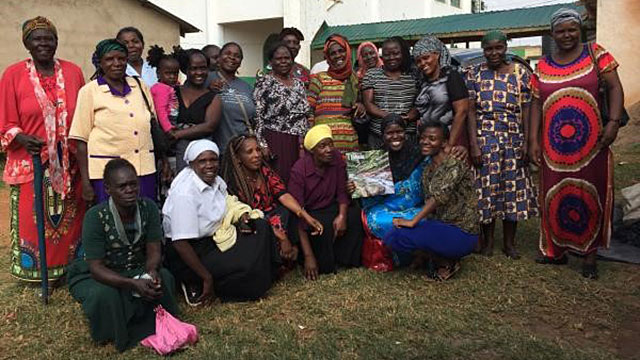Written by Norval Reece on February 28, 2023

Some Pennswood Village residents in Newtown have donated $6,500 to fund a Right Sharing of World Resources (RSWR) group in Kenya. Soon they will be getting reports on how and what the members of the group are doing.
The Pennswood Village residents are now engaged in international impact investing — sending money from a country with one of the highest median incomes in the world, $43,585, to one of the lowest, $1,870. Gallup 2021.
Impact investing: investments intended to make a difference in social, environmental, and economic conditions. I lived in India for two years in the ‘60s and organized workcamps for college students in remote villages and Tibetan refugee camps. I’ve had business ventures in several countries in East Europe and Russia and visited over 50 countries. I thought I knew a bit about the contrast between the rich and the poor. But I was sharply reminded of this disparity while listening recently to a presentation by Jackie Stilwell, General Secretary of Right Sharing of World Resources (RSWR).
Right Sharing of World Resources (www.rswr.org) is a small Quaker organization making a big impact. RSWR currently works in India, Kenya, Guatemala, and Sierra Leone providing small grants to groups of impoverished women who then make microloans to their members to engage in start-up, income generating activities in agriculture and small-scale business, through community self-help initiatives.
In just 10 years, RSWR has provided grants to 600 women’s groups with over 16,000 individual beneficiaries! The grant given to a group is usually about $5,500. The average loan to an individual member of the group ranges from $25 to $150. The pay-back rate is an astounding 95%.
Each group of women is required to be small (15-35), audited, with little or no access to other funds, inclusive of village tribal, religions and other divisions, and committed to two things: 1) helping each other succeed in their local businesses, and 2) making sure each woman repays her loan so it can help others.
Here’s how the program works: 1) Groups of women submit detailed business plans for a seed grant; 2) The Board of RSWR selects the groups to receive the grants (funded by donations to RSWR); 3) The groups then loan money to their individual members to run microbusiness ventures; 4) The women run their businesses, generate income, and pay back their loans with interest to the group; 5) The group then uses the repaid money to make more loans to other women to fund more businesses.
RSWR staff in each country assist the groups with applications for funds and financial and organizational expertise after groups receive grants.
My neighbor at Pennswood Village in Newtown, Will Reid, is a big RSWR supporter. I asked him why? He said, “I believe micro-loans are the strongest instruments we have to enable the poorest of the poor to bring about their own development. For these reasons I believe microlending is a key to achieving a more just world.”
Inspired by Will Reid and Jackie Stillwell, some Quakers and friends at Pennswood Village have funded the Andingo Support Group in Kenya, a real-life example of what Will Reid is talking about. It is composed of 30 poor, rural women, including some Quakers, affected by HIV/AIDS.
With the grant from the people at Pennswood Village, individual women in the group will undertake businesses in six areas: fish mongering, buying and selling cereals, selling secondhand clothes and shoes, grocery kiosks, vegetable and fruit stalls, and milk vending.
Each individual will borrow $108 from the group at 10% interest and repay the group in twelve months. The money will then be reloaned to others for their businesses and recirculated again and again.
So, hats off to the folks at Pennswood Village. They’re making a difference in the lives of women entrepreneurs in another village far away. That’s serious impact investing.